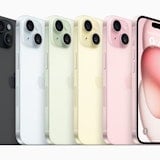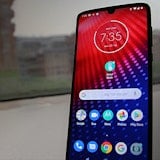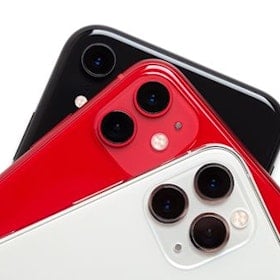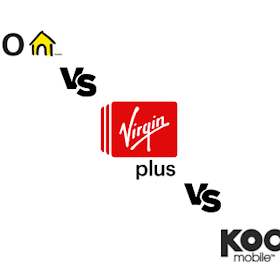The mobile device industry is a fast moving place. With a new device either rumoured or announced every week, constant operating system (OS) updates and giant companies vying for dominance in what is quickly becoming the world’s most profitable business it can sometimes be difficult to sit back and see the big picture.
After the singularly hectic August we’ve just had we thought it might be worth it to take a little time out of our day and briefly reflect on the state of the current world mobile market. Don’t worry, this isn’t going to be a huge list of stats, market percentages and analytical forecasts. We figured we’d take a more informal approach to the whole thing.
As a result we’ve picked out some of our favourite points that we find intriguing, especially when you compare them to the mobile market a couple of years ago, or even how things stood just at the beginning of 2011.

Everyone Has a Smartphone
Ok, so not everyone has a smartphone these days, but you’ll definitely find that feature phones are in the minority in places like the US, UK, mainland Europe and Australia. We’re all so used to them that we hardly even realise just what exactly it is that we’re carrying around in our pockets.
A modern smartphone is essentially a phone/media player/text communicator/mobile internet device/camera/camcorder/social organiser/GPS locater/PDA/mobile gaming machine that almost always utilises a multi-touch capacitive touchscreen interface; a technology which at the beginning of 2007 would have seemed nothing less than miraculously futuristic.
I remember my very first phone. It was a Nokia 3215 bar phone with “black and white” (black and green, really) graphics, huge pixels and literally everything that I stored to the phone was saved straight on the SIM card because all it could do was text and call. The screen was tiny, there was no QWERTY keyboard in sight, no camera, no internet and for gaming you had a choice between Snake 2 or spinning it on the table and seeing how long it would keep going for.
Of course that was a while ago now but you get the point. Smartphones are amazing pieces of technology that are gaining importance every day in our lives. They’re so prolific that we actually complain when our ‘crappy’ out of date phone isn’t as good as other devices out there because it takes a little longer to stream free video content from the web. The simple truth of it is that they’re the kind of thing we used to see in Sci Fi. The only reason we don’t anymore is because we already have them.
 Steve Jobs Retires from Apple
Steve Jobs Retires from Apple
Steve Jobs, one of the driving factors behind the current mobile device revolution, has retired as Apple CEO citing medical reasons. Steve Jobs oversaw the birth of the iPod, iPhone, iPod Touch and iPad (amongst many other things). Of course awarding Steve Jobs sole credit for these products would be ridiculous as teams of designers, programmers, market analysts, product testers, forecasters, developers and manufactures were all intimately involved at the development of each gadget at every layer of production. However, Steve Jobs is the man who was in charge of it all.
Achieving a status rivalled by only the most popular of A-list celebrities, Steve Jobs has a veritable army of fans around the world. While we’ve seen famous CEOs before (Bill Gates, Donald Trump) we’ve arguably never seen one more loved by such a huge number of their customers.
Now, faced with a future where Apple is run by CEO Tim Cook, it’s strange to think that Jobs, who was as much a mascot for Apple as he was a CEO, will be out of the picture. It probably won’t actually change anything major in the long run, but we just can’t see Jobs’ massive fan base turning around and showing the same amount of love to Apple’s new CEO. Will we see a new kind of marketing out of Apple in order to combat this, or will the brand decide to simply stand on its own?
 Tablets are Everywhere
Tablets are Everywhere
I take a bus and a train to work every morning and as I look around I can almost guarantee that I will see at least 2 people with tablets, usually iPads. For a device that was only re-imagined a couple of years ago the tablet market is absolutely booming around the world.
Schools, law enforcement, airlines, corporate businesses and even governmental institutions have been handing out tablets to their students and employees in order to assist with day-to-day operations.
This is all on top of the casual consumer market for tablets which is expected by some analysts to outgrow the home computer market within the next few years. Once again we’re a talking Sci Fi stuff here, except it’s real and in your own home. Although there are still a lot of people who look on tablets as nothing more than a gimmick, there’s no denying that they’re impressive pieces of technology and their growing prevalence demonstrates their popularity.
HP and Palm Have Stopped Making Smartphones
HP announced in August that it would no longer be supporting operations for its widely popular webOS operating system. This news hit American consumers the hardest due to webOS’ comparatively large market in the US than elsewhere.
For a long time in the US Palm smartphones were seen as the only real viable contender in the race against the iPhone. With Android still in its infancy, BlackBerry focusing mostly on business customers and the iPhone available on only 1 carrier – AT&T – the Palm Pre line, along with other webOS devices, was considered by many the best alternative for anyone who wasn’t on an AT&T plan.
So what happened? WebOS failed, twice. First Palm failed to spread its products in the face of increasing competition from Android. Then Palm was bought by HP, who confidently took over production of webOS devices. HP arguably handled the situation even more poorly than Palm had, with minimal marketing and constantly delayed devices.
Finally HP announced in August of this year that all support for webOS operations would cease immediately. This doesn’t mean webOS is completely dead, as it’s still possible that some other manufacturer might step in and pick up the torch. But it certainly isn’t going to be HP.
 The Rise and Fall and Possible Rise of BlackBerry
The Rise and Fall and Possible Rise of BlackBerry
BlackBerry phones have, traditionally, been almost the exclusive domain of the business world. The legendary PDA of the BlackBerry OS, as well as secure email system, physical QWERTY keypad and no-nonsense design have had and still have great appeal to many enterprise customers.
If you’d care to remember, in the pre-iPhone world the term “BlackBerry” was basically synonymous with “smartphone” and were seen as a huge status symbol in many social circles.
However, with consumer smartphones like iPhones, Androids and even Windows Phone devices growing in not only popularity but also functionality, many businesses are turning away from their old stable and embracing newer technologies.
In an effort to compete the owner of the BlackBerry line, RIM, has started to branch in to the consumer market. The result? The BlackBerry Torch line relies on a capacitive multi touch interface, much like most of the competition. The recently released BlackBerry Bold 9900 also sports a touchscreen, but with the familiar physical keypad underneath.
Unfortunately for RIM it could be too little too late at this point. RIM waited a long time to change its approach to smartphone design and as a result it’s playing a desperate game of catch-up. The BlackBerry Bold 9900 has certainly been a great step in the right direction and we hope it’s indicative of more good things to come. But only time will tell with this one.
 Microsoft is the Underdog
Microsoft is the Underdog
During the 90’s if someone said the word “Monopoly” you generally thought of one of two things: the board game or Bill Gates and Microsoft. Now, it seems, Microsoft is playing third fiddle in some of the world’s biggest computing markets to not only Apple, but Google as well.
Last year, Microsoft finally decided it would take the smartphone market seriously and abandoned its failing Windows Mobile OS. A completely new OS was born from the ashes and carries the title of Windows Phone. Windows Phone 7, the first iteration of Windows Phone, took a lot of flak when it was first released. Reviewers bombarded it for lack of functionality, lack of diversity across devices and lack of support.
However, Windows Phone has actually proven to be a smash success, soaring to 3rd place in front of BlackBerry and webOS, both of which were far more established operating systems at the time.
Now the tech industry is eagerly awaiting the first big update for Windows Phone, named “Mango”. If it’s everything we’re hoping it to be Microsoft could very well see another rapid rise in popularity within the smartphone market.
Google Buys Motorola
Amongst the spectacular tech world news frenzy that was August 2011 this was definitely one of the biggest stories. In a huge $12.5 Billion move Google announced that it would acquire Motorola Mobility. Although Motorola has never been right at the top of the smartphone market, usually sitting behind other Android manufacturers like HTC or Samsung, Motorola devices have still seen their fair portion of market share.
While Google has never displayed an avid interest in taking on the mobile market as a hardware manufacturer, this move would certainly suggest that the industry giant has had a change of heart. Many argue that this move is to stave off Apple’s continuous lawsuits against Google, as Motorola Mobility brings with it over 17 000 patents. Others simply believe that Google became sick of relying on 3rd party manufacturers like Samsung and HTC to make Android’s flagship phones.
Nokia is Making Windows Phones to Stay Afloat
 Just before the release of the iPhone in 2007 Nokia was probably the most popular, the most reliable and the best known phone manufacturer in the world. Nokia was the top-dog with sturdy handsets that excelled in style, durability and functionality.
Just before the release of the iPhone in 2007 Nokia was probably the most popular, the most reliable and the best known phone manufacturer in the world. Nokia was the top-dog with sturdy handsets that excelled in style, durability and functionality.
In the post-iPhone market Nokia isn’t doing so well. Nokia, much like RIM, failed to keep up with innovation in the constantly moving smartphone market. As a result Nokia has been playing catch-up with the major players for years now in both the hardware and software departments. Nokia’s own OS – Symbian – seemed to always been at least 1 generation behind the competition in both function and appearance.
Now, with its new CEO Stephen Elop, Nokia has decided to completely drop Symbian as a platform and switch over to Microsoft’s new OS; Windows Phone. Nokia Windows Phones will soon represent the absolute top of the Nokia smartphone line, with Symbian support only continued in the form of updates for users who already have devices of that OS.
So Nokia, once the king of the mobile world, has had to turn to Microsoft in its hour of need. This is definitely something we would not have predicted back in 2007.
Summary
Let’s take a look back over all of this. At the end of August 2011 we had a world where:
- A roughly 1GHz computer of amazing functionality is in every pocket (oh yeah, that’s also a phone)
- Steve Jobs has retired from Apple
- A booming tablet market
- BlackBerry phones being aimed at private consumers in an effort to compete
- Microsoft is #3 to Google and Apple
- Motorola Mobility is owned by Google
- Nokia has turned to Microsoft in order to survive
Technology sure does move quickly and in no area of society is this demonstrated more quickly right now than in the world mobile device market.
We can’t help but think what our teenage selves would say or think if they were to catch a glimpse of half the devices we now take for granted in everyday life. The world of technology is a fascinating and exciting place and we can’t wait to see what happens next.
Related Articles
Related Topics
Apple BlackBerry Motorola Nokia Android Google Windows Phone 7 Microsoft Windows Phone RIMPopular Topics
Android Apple iPhone Samsung Google iOS Cell phone plans Rogers Telus BellFind Better Phones and Plans
Hundreds of cell phone plans unpacked. All the facts. No surprises.








































